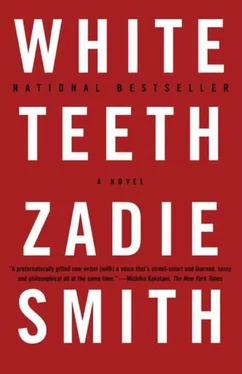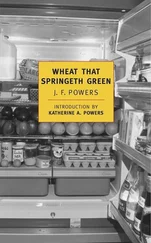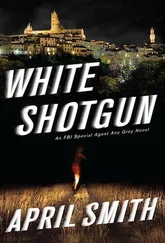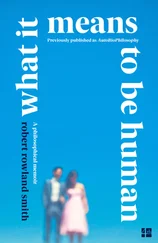‘One strong man and one weak is a colony, Sapper Jones,’ said Samad.
When Archie and Samad reached the tank, they found Privates Mackintosh and Johnson and Captain Thomas Dickinson-Smith dead. Johnson strangled with cheese wire, Roy shot in the back. Roy’s jaw had been forced open, his silver fillings removed; a pair of pliers now sat in his mouth like an iron tongue. It appeared that Thomas Dickinson-Smith had, as his attacker moved towards him, turned from his allotted fate and shot himself in the face. The only Dickinson-Smith to die by English hands.
While Archie and Samad assessed this situation as best they could, Colonel-General Jodl sat in a small red schoolhouse in Reims and shook his fountain pen. Once. Twice. Then led the ink a solemn dance along the dotted line and wrote history in his name. The end of war in Europe. As the paper was whisked away by a man at his shoulder, Jodl hung his head, struck by the full realization of the deed. But it would be a full two weeks before either Archie or Samad were to hear about it.
These were strange times, strange enough for an Iqbal and a Jones to strike up a friendship. That day, while the rest of Europe celebrated, Samad and Archie stood on a Bulgarian roadside, Samad clutching a handful of wires, chipboard and metal casing in his good fist.
‘This radio is stripped to buggery,’ said Samad. ‘We’ll need to begin from the beginning. This is a very bad business, Jones. Very bad. We have lost our means of communication, transport and defence. Worst: we have lost our command. A man of war without a commander is a very bad business indeed.’
Archie turned from Samad and threw up violently in a bush. Private Mackintosh, for all his big talk, had shat himself at St Peter’s Gate, and the smell had forced itself into Archie’s lungs and dragged up his nerves, his fear and his breakfast.
As far as fixing the radio went, Samad knew how , he knew the theory , but Archie had the hands, and a certain knack when it came to wires and nails and glue. And it was a funny kind of struggle between knowledge and practical ability which went on between them as they pieced together the tiny metal strips that might save them both.
‘Pass me the three-ohm resistor, will you?’
Archie went very red, unsure which item Samad was referring to. His hand wavered across the box of wires and bits and bobs. Samad discreetly coughed as Archie’s little finger strayed towards the correct item. It was awkward, an Indian telling an Englishman what to do – but somehow the quietness of it, the manliness of it, got them over it. It was during this time that Archie learnt the true power of do-it-yourself, how it uses a hammer and nails to replace nouns and adjectives, how it allows men to communicate. A lesson he kept with him all his life.
‘Good man,’ said Samad, as Archie passed him the electrode, but then, finding one hand not enough to manipulate the wires or to pin them to the radio board, he passed the item back to Archie and signalled where it was to be put.
‘We’ll get this done in no time,’ said Archie cheerfully.
‘Bubblegum! Please, mister!’
By the fourth day, a gang of village children had begun to gather round the tank, attracted by the grisly murders, Samad’s green-eyed glamour, and Archie’s American bubblegum.
‘Mr Soldier,’ said one chestnut-hued sparrow-weight boy in careful English, ‘bubblegum please thankyou.’
Archie reached into his pocket and pulled out five thin pink strips. The boy distributed them snootily amongst his friends. They began chewing wildly, eyes bursting from their heads with the effort. Then, as the flavour subsided, they stood in silent, awed contemplation of their benefactor. After a few minutes the same scrawny boy was sent up as the People’s Representative once more.
‘Mr Soldier.’ He held out his hand. ‘Bubblegum please thankyou.’
‘No more,’ said Archie, going through an elaborate sign language. ‘I’ve got no more.’
‘Please, thankyou. Please ?’ repeated the boy urgently.
‘Oh, for God’s sake,’ snapped Samad. ‘We have to fix the radio and get this thing moving. Let’s get on with it, OK?’
‘Bubblegum, mister, Mr Soldier, bubblegum.’ It became a chant, almost; the children mixing up the few words they had learnt, placing them in any order.
‘ Please ?’ The boy stretched out his arm in such a strenuous manner that it pushed him on to the very tips of his toes.
Suddenly he opened his palm, and then smiled coquettishly, preparing to bargain. There in his open fist four green notes were screwed into a bundle like a handful of grass.
‘Dollars, mister!’
‘Where did you get this?’ asked Samad, making a snatch for it. The boy seized back his hand. He moved constantly from one foot to another – the impish dance that children learn from war. The simplest version of being on your guard.
‘First bubblegum, mister.’
‘Tell me where you got this. I warn you not to play the fool with me.’
Samad made a grab for the boy and caught him by the arm of his shirt. He tried desperately to wriggle free. The boy’s friends began to slink off, deserting their quickly sinking champion.
‘Did you kill a man for this?’
A vein in Samad’s forehead was fighting passionately to escape his skin. He wished to defend a country that wasn’t his and revenge the killing of men who would not have acknowledged him in a civilian street. Archie was amazed. It was his country; in his small, cold-blooded, average way he was one of the many essential vertebrae in its backbone, yet he could feel nothing comparable for it.
‘No, mister, no, no. From him. Him.’
He stretched his free arm and pointed to a large derelict house that sat like a fat brooding hen on the horizon.
‘Did someone in that house kill our men?’ barked Samad.
‘What you say, mister?’ squeaked the boy.
‘Who is there?’
‘He is doctor. He is there. But sick. Can’t move. Dr Sick.’
A few remaining children excitedly confirmed the name. Dr Sick, mister, Dr Sick.
‘What’s wrong with him?’
The boy, now enjoying the attention, theatrically mimed a man crying.
‘English? Like us? German? French? Bulgarian? Greek?’ Samad released the boy, tired from the misplaced energy.
‘He no one. He Dr Sick, only,’ said the boy dismissively. ‘Bubblegum?’
A few days later and still no help had arrived. The strain of having to be continually at war in such a pleasant village began to pull at Archie and Samad, and bit by bit they relaxed more and more into a kind of civilian life. Every evening they ate dinner in the old man Gozan’s kitchen-café. Watery soup cost five cigarettes each. Any kind of fish cost a low-ranking bronze medal. As Archie was now wearing one of Dickinson-Smith’s uniforms, his own having fallen apart, he had a few of the dead man’s medals to spare and with them purchased other niceties and necessities: coffee, soap, chocolate. For some pork Archie handed over a fag-card of Dorothy Lamour that had been pressed against his arse in his back pocket ever since he joined up.
‘Go on, Sam – we’ll use them as tokens, like food stamps; we can buy them back when we have the means, if you like.’
‘I’m a Muslim,’ said Samad, pushing a plate of pork away. ‘And my Rita Hayworth leaves me only with my own soul.’
‘Why don’t you eat it?’ said Archie, guzzling his two chops down like a madman. ‘Strange business, if you ask me.’
‘I don’t eat it for the same reason you as an Englishman will never truly satisfy a woman.’
‘Why’s that?’ said Archie, pausing from his feast.
‘It’s in our cultures, my friend.’ He thought for a minute. ‘Maybe deeper. Maybe in our bones.’
Читать дальше












